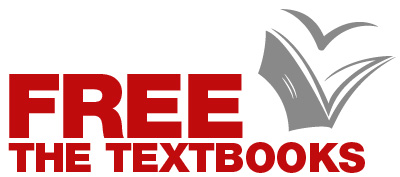Many students and their families are faced with the economic burden of paying for expensive textbooks on top of high tuition and boarding expenses. In response to high prices of class materials, students are forced to either incur more debt or make choices that limit their full academic exposure. Open Source Textbooks provide an outstanding opportunity to lower these costs.
About Free Open Source Textbooks
What are open source textbooks?
Open source textbooks are written and reviewed by professors, and are published under an open license. This means that online versions of the textbooks are free to view and download, and print copies are available for a much cheaper price than the current textbooks college students buy. Open licenses allow for intellectual property to be viewed and modified by individuals of the general public.
Who is using open source textbooks and materials?
Open Education Consortium, OpenStax College and Saylor Academy are just a few non-profit organizations that provide free textbooks that are available to anyone with access to their websites. Individual institutions, such as Johns Hopkins Bloomberg School of Public Health, Carnegie Mellon and Massachusetts Institute of Technology, have adopted Open Courseware, through which they publish free online materials for entire courses under various subjects.
Why are open source textbooks and materials important?
Unlike a typical market, the textbook market has no direct interaction between the producer and the consumer. With normal markets, the consumer exercises control over prices by choosing to purchase products that priced best for their value. This consumer choice forces producers to price their products competitively.
"In the textbook market, this consumer control is eliminated by the fact that the professor, not the student/consumer selects the product, and the student/consumer actually expends the money. Because of this, the student is a captive market, and traditional publishers are able to drive continually prices higher without fear of market repercussion.”
Ethan Senack
The Student PIRGS
02/2015
Open Source Textbook Resources
OpenStax College
Rice University
Nonprofit organization publishing open textbooks for 20 gateway college courses (including biology, chemistry, macro– and micro–economics, sociology, United States history, and anatomy and physiology). Developed and peer–reviewed by educators to ensure readability, accuracy, and compatibility with course scope and sequence requirements.
Open Learning Initiative
Carnegie Mellon University
Initiative publishing high–quality, research–based, classroom–tested online courses and materials. Currently offers educators free access to 27 complete courses they can adopt and adapt for their needs. Is working on several more with a focus on introductory community college courses.
Open SUNY Textbooks
State University of New York Libraries
Initiative that publishes high–quality, cost–effective course resources. Engages faculty as authors and peer–reviewers and libraries as publishing service and infrastructure. Initial pilot published 15 open textbooks, with 12 more in development.
MERLOT
CSU
Online learning community created in 1997 by CSU that offers free access to more than 60,000 peer–reviewed online teaching and learning materials across a wide range of disciplines.
Candela Courses
Lumen Learning
Catalog of more than 60 OER college courses in high–demand subjects. Made available as a public service by firm providing technical assistance for several system and state OER initiatives.
Open Course Library
Washington State Board for Community and Technical Colleges (WSBCTC)
Initiative offers collections of course materials that are free or cost no more than $30 for system’s 81 highest enrolled courses.
Free Education Initiative
Saylor Foundation
Nonprofit foundation and associated Saylor Academy provide more than 100 open textbooks in common subject areas and dozens of open online courses that educators can mine for materials for their own courses.
B.C. Open Textbook Project
British Columbia Ministry of Advanced Education
Curated collection of more than 100 open textbooks for the top 40 college subject areas in British Columbia. Many of the textbooks have been reviewed and vetted by postsecondary faculty.
College Open Textbooks Collaborative
Collaboration of 29 educational nonprofit and for–profit organizations affiliated with more than 200 colleges aiming to increase awareness and adoption of OER. Provides a repository of more than 100 peer–reviewed open textbooks and is in process of reviewing 250 more.
Community College Consortium for OER
Consortium of more than 250 community and technical colleges representing individual, regional, and statewide members in 17 North American states and provinces. Provides links to OER materials (in existing databases such as OER Commons) that are suitable for community college courses.
OER Commons
Institute for the Study of Knowledge Management in Education (ISKME)
Large database providing a single point of access from which educators and students can efficiently search, browse, and evaluate resources in project’s growing collection of links tohigh–quality OER. Includes more than 3,700 full courses.
Open CourseWare Consortium
Nonprofit global network of institutions, organizations, and individuals supporting collective development and use of OER through greater awareness, implementation support, andcapacity–building. Provides access to thousands of full courses, open textbooks, and other OER.
Skills Commons
Managed by CSU for federal Department of Labor
Repository of free and open learning materials developed under a federal workforce training grant for career technical education and workforce development. Includes many types of materials, including course modules, online courses, and open textbooks.
University Open Courseware Initiatives
Several universities, including Johns Hopkins, Harvard, Massachusetts Institute of Technology, Stanford, The Open University, Tufts, UC Berkeley, UC Irvine, Michigan, and Yale post videotaped lectures and course materials, many of which are free and openly licensed. Many of these courses also include copyrighted works that are available for purchase.
University of Minnesota Open Textbook Library
Library with over 170 high quality open textbooks in a wide variety of subject areas.
